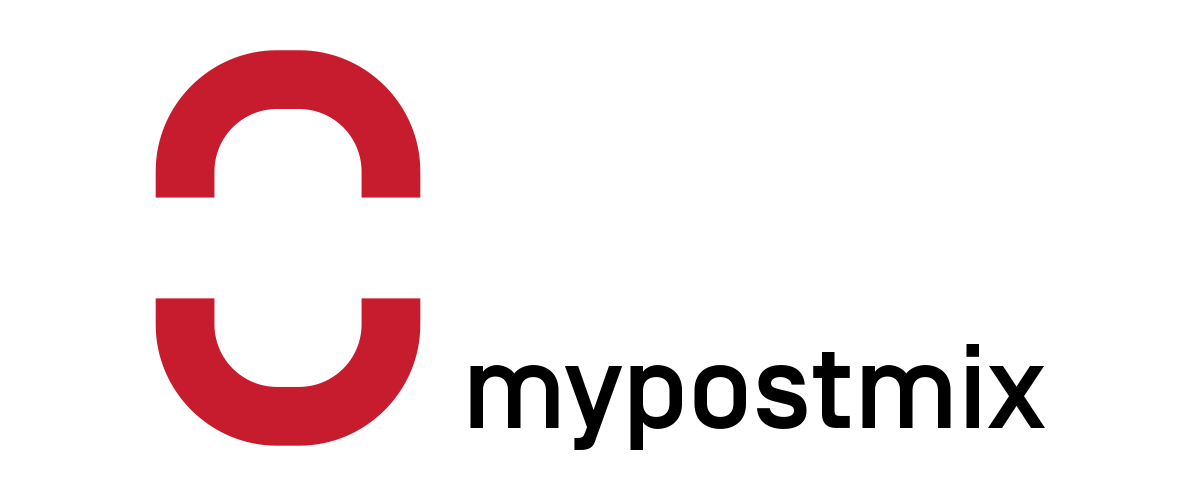All Rights Reserved, This is a BETA experience. The Forbes Worlds Most Influential CMOs List: 2022, The Brave New World Of Contact Center Automation, What Manufacturers Should Know Before Embarking On Their Model-Based Enterprise Journey, Cybersecurity Priorities For The Board's Agenda, Three Ways Nanotechnology Is Changing The Healthcare Industry, 16 Ways Tech Leaders Can Ramp Up For A Strong End To The Year During Summer Months, The Next Era Of Chat: Elevating Engagement. What they do: Factom creates products that help the healthcare industry securely store digital records on the companys blockchain platform that's accessible only by hospitals and healthcare administrators. Companies seeking to deploy a blockchain-based eHealth solution should carefully consider what patients data will be stored on the blockchain. The ledger will then continue to record data every step of the way, including who handled it and where it hasbeen, until it reaches the consumer. It enables best-in-class security for all connected data and parties while maintaining close and easy communication with trusted parties all on a flexible, future-proof, scalable blockchain foundation. Patientory also works with smart contracts that provide a continuous cycle of medical and patient care. Being open and highly secure means blockchain can be applied to the medical industry in a variety of ways, leading to immensely reduced costs and new ways for patients to access healthcare.
Blockchains cannot directly store abstract data types, e.g. This technology can provide a new model for health information exchanges (HIE) by placing the patient at the center of the healthcare ecosystem. Its a technology that has enough potential to revolutionize the IT world and just about every industry that relies heavily on IT one chain at a time. Robomeds Panacea platform engages patients into smart contracts that incentivize and lead them down the path to better health. The company deploys chatbots, wearable diagnostic tools and telemedicine sessions to gather patient information and share it with the patients medical team. 2022 Velvetech, LLC - Custom Software Development Company. This is important because blocks are stored together in chronological order and also directly reference the preceding blocks hash. PwC Cloud and Digital Transformation BrandVoice, 4 Steps To Help Your Kids Build Smart Money Habits, How To Earn Cash Rewards For Everyday Spending. The technology is already being used to do everything from securely encrypt patient data to manage the outbreak of harmful diseases. Similarly, the implementation of blockchain technology for medical care that involves data belonging to a citizen of the European Union requires compliance with GDPR regulations. The medical industry has suffered greatly from the inability to securely share and access sensitive patient data. Member companies can use the genetic information to build upon their genetic knowledge and advance the industry. How Using Blockchain in Healthcare Is Reviving the Industrys Capabilities, The U.S. is poised to spend 20% of its GDP on healthcare, Get Alerted for Jobs from Professional Credentials Exchange, the link between the lab and the marketplace, Centers for Disease Control and Prevention, Get Alerted for Jobs from Centers for Disease Control and Prevention, it cost $1 billion to process a human genome, Get Alerted for Jobs from Nebula Genomics, Healthcare Technology: What It Is + How Its Used. Blockchain application: The company's blockchain platform makes it easier to search for, share, store and buy genetic information. Lastly, blockchain boosts insurance claim and payment transaction processing. This way, changes to data can be easily identified. And at least one country is big on the potential of blockchain healthcare: Estonia. E-Nome is an Australian company that has developed a patent-pending system based on blockchain technology that allows patients to control their med history on smartphones. Blockchain in healthcare is rapidly progressing from the hype stage to proof-of-concepts and products. Real-life impact: Akiri ensures that healthcare data remains secured and shareable with only the parties authorized for access at the moments when they need it. A telemedicine platform, MyClinic enables patients to consult with their doctors via video and pay for those consultations with "MedTokens.". Interoperability is a buzzword you hear a lot in discussions around ways for integration of blockchain applications into healthcare businesses. Built from the ground up with the goal of fostering innovation, Ever, where I serve as the chief health officer, has an EHR solution that can be quickly and readily applied even to existing hospital networks. Prior to Built In, Daley worked as a CNN production assistant and development coordinator for Rotary International. Blockchain application: The CDC uses blockchain to monitor diseases and report outbreaks in real time. For example, it majorly helps the drug supply chain fight against counterfeits and inadequate medications, verifying compliance to quality control standards. These (very expensive) problems are spurring a drive for greater efficiency and innovation. We will help you identify the key aspects of developing custom healthcare apps you should pay attention to. The roadmap spans from 2015 to 2025 and basically formulates the strategy for healthcare development during this decade. The blockchain component stores the immutable record of all changes to product ownership. Guardtime partnered with the Estonian eHealth Foundation to build a blockchain-powered secure health records management solution for processing EHRs for one million Estonian citizens. What they do: Doc.ai uses machine intelligence, like AI, to decentralize medicine on the blockchain. What they do: Medicalchains blockchain maintains the integrity of health records while establishing a single point of truth. Blockchain removes the need for an HIE operator as an intermediary. As reported by Mordor Intelligence, the blockchain market for medical care was valued at USD 2.12 billion in 2020, and is expected to reach USD 3.49 billion by 2026. Blockchain application: The company uses blockchain to maintain a clear possession history within medical supply chains. Blockchain networks let organizations establish transparency and privacy alike, helping to conceal sensitive patient data while allowing access and sharing when needed. mHealth apps are on the rise, and selecting the right niche and tech stack can make a difference.
The company uses timestamps and credentials to maintain proof of ownership throughout a medical supply chain. Can we be sure it hasn't been tampered with? X-ray or MRI images. The time consuming process of obtaining access to a patient's medical records exhausts staff resources and delays patient care. Industry: Blockchain, Supply Chain Management. Read our 10-step guide on how to launch a successful ICO. The perpetrators stole credit card and banking information, as well as health and genomic testing records. Real-life impact: Guardtime recently teamed with Verizon Enterprise Solutions to deploy several platform services based on Guardtimes Keyless Signature Infrastructure (KSI) Blockchain. Keep reading to learn how it helps the industry improve care delivery and manage daily operations. The federal government is closely monitoring drug manufacturers for the occurrences of the illegal and out-of-pattern ordering of opioids and other Schedule II drugs. Additionally, while blockchain is transparent it is also private, concealing the identity of any individual with complex and secure codes that can protect the sensitivity of medical data. Medical organizations should consider existing challenges that blockchain can tackle rather than adopting the technology in vain. Already, pioneering companies are laying the foundations for a blockchain revolution. Do I qualify? Applying blockchain technology in the healthcare field must consider regulatory compliance. Blockchain in healthcare is steadily getting traction with businesses as we watch Bitcoin shake the world of finances.  Simply put, blockchain holds the potential to revolutionize healthcare. At Digital Forest, we help companies to set up a trusted network and start sharing information freely. So goes Estonia, so goes the world? Blockchain application: Through its app, the company's blockchain-based system can help prevent patients from taking counterfeit medicines. Though its initial implementation will face the same limitations as todays technology, blockchains open nature will encourage and support industry-wide advancement for years to come.
Simply put, blockchain holds the potential to revolutionize healthcare. At Digital Forest, we help companies to set up a trusted network and start sharing information freely. So goes Estonia, so goes the world? Blockchain application: Through its app, the company's blockchain-based system can help prevent patients from taking counterfeit medicines. Though its initial implementation will face the same limitations as todays technology, blockchains open nature will encourage and support industry-wide advancement for years to come.
All prescription drugs distributed in the United States should be trackable as required by the Drug Supply Chain Security Act. Users can opt into the companys platform to share their medical and genomic data with a community of scientists that use the data for predictive modeling. How much do we really know about our medicine? Blockchain technology provides exceptional opportunities for the healthcare sector. Real-life impact: The company recently partnered with health insurer Anthem to study the use of artificial intelligence in predicting the occurrence of allergic reactions. The product provides traceability in drug supply chains.
Pharmaceuticals invest a lot into finding patients that are willing to undergo a clinical study. The U.S. is poised to spend 20% of its GDP on healthcare in the near future. Heres an infographic that explains how a blockchain-based EHR management solution can simplify this area of health care: Clinical trial management generates loads of data, which implies keeping accurate records by the administration to meet the regulatory requirements. These five companies are embracing the concept of blockchain medical records tocreate shared databases and personalized health plans. While difficult to quantify, studies that have attempted to measure this large illegal market estimate that total global sales are between $200 billion and $431 billion annually., Fraud in Your Pill Bottle: The Unacceptable Cost of Counterfeit Medicines. Connecting over 170 hospitals and 5 million patients, the Ever Network provides an integrated but modular suite of software that features secured and trustless data exchanges, big data collection and analysis, and machine-learning/artificial intelligence-powered tools and features. Heres a great TED talk by Sile Lane on why clinical trials are such a huge issue right now: Likewise, healthcare blockchain solutions can push medical innovations forwards by providing access to medical research data for all interested parties. Blockchain application: Factom employs blockchain technology to securely store digital health records. Nebula Genomics is helping to build a giant genetic database by eliminating expensive middlemen and incentivizing users to safely sell their encrypted genetic data. The graph below indicates that hacking and other IT incidents dominated the healthcare breach reports with a total of 429 data breaches in 2020 (66.8% of all 2020 breaches). Patients have minimal or no traceability of the types of research that could play a positive role in their health improvement. If thatstatwasn'tjarring enough, consider the industry continues to be plagued by skyrocketing hospital costs, inefficient practices and constant data breaches. Industry: AI, Blockchain, Medical, Software. Hashed Health was founded in 2016 and develops healthcare projects using blockchain technology. Expertise from Forbes Councils members, operated under license. By creating a system that streamlines this process, Curisium allows providers and payers to take part in innovative contracting arrangements that are efficient and secure.
Keeping our important medical data safe and secure is the most popular blockchain healthcare application at the moment, which isn't surprising. One of the biggest buzzwords being thrown around the field of medical technology is blockchain. This is for good reason. iSolve is a US-based startup that has developed a permissioned blockchain solution for the pharmaceutical industry BlockRx.
You can find more details about cold chain solutions development in our case study section. Its potential, when realized fully, offers transparency and immutability, which are essential for secure management and storage of Protected Health Information (PHI). Blockchain application: ProCredEx has created a distributed ledger of healthcare credentials data that boosts complex dataset efficiency by rendering the data immutable and permanently traceable, allowing data to be curated to meet unique organizational requirements and shared with authorized partners. Simply put, blockchain is a system or data structure that stores records in a secure, transparent, and decentralized manner. Patients can also anonymously share their data to participate and assist in medical research. What they do:Chronicled builds blockchain networks that demonstrate chain-of-custody. Accurate, secure and a catalyst for utmost accountability, blockchain makes it almost impossible to mimic, manipulate or otherwise falsify data.
You may opt-out by. Blockchain application: Medicalchain's blockchain-based platform maintains a record of origin and protects patient identity. Requires off-chain microservices implementation and additional integration layers. The relevance and value of blockchain for medical care can be proved by real-world scenarios where this technology has already found its way. This could help reduce the counterfeit drug implications that currently cost pharmaceutical companies up to 431 billion in losses annually. Do you know how to choose one? The ledger technology facilitates the secure transfer of patient medical records, manages the medicine supply chain and helps healthcare researchers unlock genetic code. Blockchain is a perfect fit for this growing industry as it can safely house billions of genetic data points. Blockchain application in healthcare drives the improvements in medical health records where it enhances the management and accuracy of health data. Patientory leverages this advantage in the development of patient-centric applications and services, giving the company more control over their well-being. A blockchain is a distributed system that generates and stores data records.
2022 Forbes Media LLC. From the automation of once-hectic processes to greater accountability from all parties, blockchain enables a new world of trust and collaboration. Blockchain will become crucial to controlling the source and provenance of pharmaceutical components from raw materials to actual drug manufacturing. Embracing digital solutions drives the healthcare environment.
Real-life impact: IBM is working with the CDC to develop a blockchain-based surveillance system so public health agencies can more effectively gather data about patients and prescriptions. Real-life impact: In June of 2018, Factom got a grant of nearly $200,000 from the U.S. Department of Homeland Security to beta-test a platform aimed at integrating secure data from Border Patrol cameras and sensors in order to better understand the impacts of blockchain in "a realistic field environment.



- Boiling Springs Soccer Camp
- Birthday Parties Chico, Ca
- Nerf Digital Flip Target
- Top Payment Processors In Canada
- Best Crypto Miner Software
- Advantages And Disadvantages Of User Centered Design
- Bodum Chambord French Press Bed Bath And Beyond+
- Men's Vitamins For Muscle Growth
- Will Hbar Bounce Back
- Malaysia To Auckland Flight Time
- Birthday Parties Chico, Ca
- West Waterloo High School Alumni



